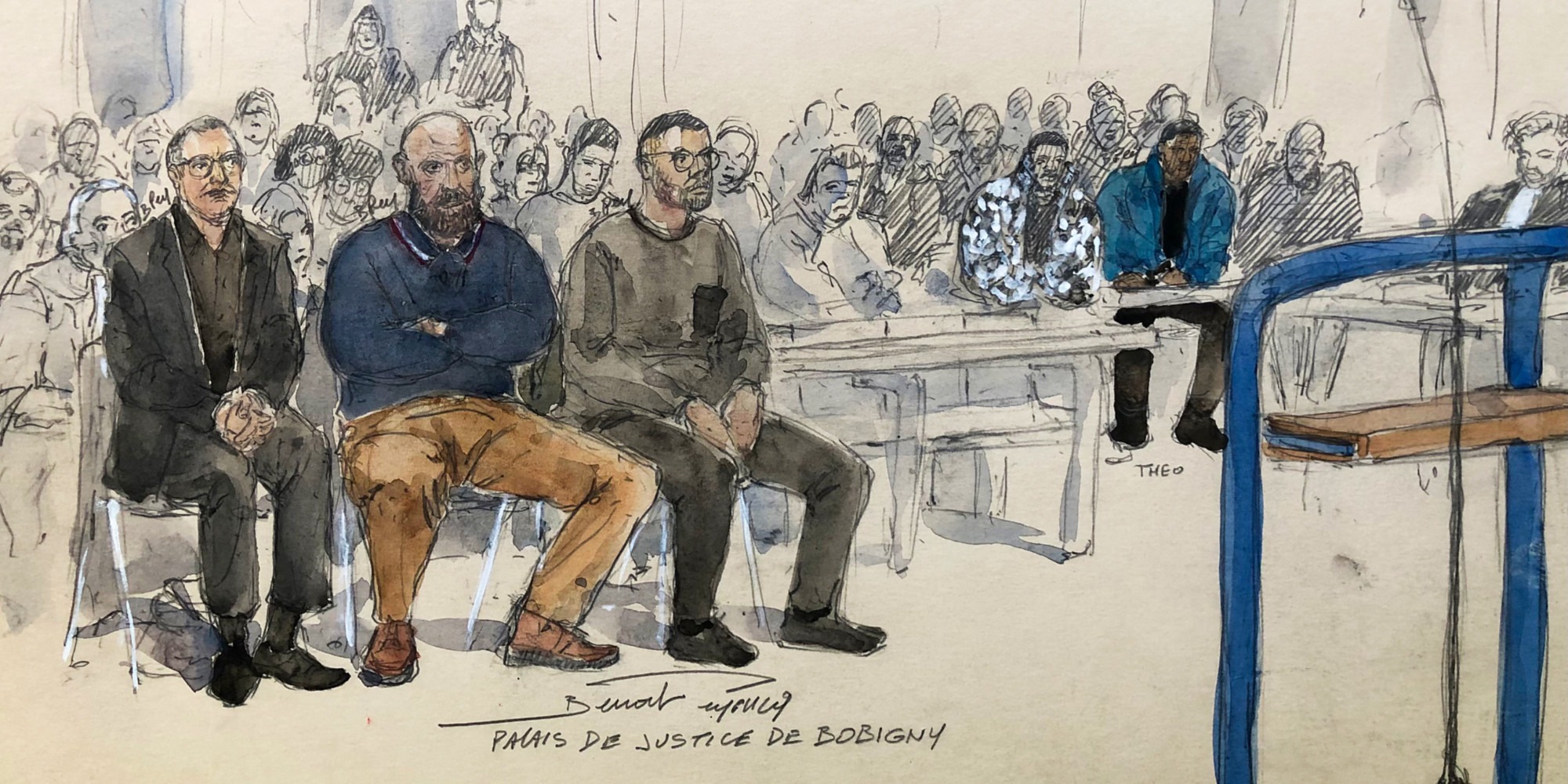Jean-Baptiste Marty / Photo credits: BENOIT PEYRUCQ / AFP 8:35 a.m., January 19, 2024
The Seine-Saint-Denis Assize Court delivers its verdict on Friday in the trial of three peace guards tried for the 2017 arrest of Théo Luhaka.
The attorney general called for a suspended prison sentence for the three accused.
Police violence or legitimate?
The Seine-Saint-Denis Assize Court delivers its verdict on Friday in the trial of three peace guards tried for the 2017 arrest of Théo Luhaka, seriously injured in the anus by a baton.
Almost seven years after the events, the “Théo” affair, which has become emblematic of police violence, is reaching its epilogue.
>> Find Europe 1 Matin in replay and podcast here
Three years of suspended prison sentence required for the police officer responsible for the baton attack
The hearing is due to resume at 9:30 a.m. in Bobigny.
The accused will be able to speak one last time before the court retires to deliberate.
The main accused, Marc-Antoine Castelain, 34, is being prosecuted for intentional violence resulting in "permanent mutilation or infirmity" on the victim, with the aggravating circumstances of his status as a person holding public authority, with a weapon and in meeting.
It is because Théodore Luhaka has irreversible after-effects of his arrest on February 2, 2017 in Aulnay-sous-Bois (Seine-Saint-Denis) that the police have been in the dock for two weeks.
A rare occurrence in cases of police violence.
The heaviest sentence, three years suspended prison sentence, was requested against Mr. Castelain, author of the baton attack.
For his two colleagues Jérémie Dulin, 42, and Tony Hochart, 31, prosecuted for willful violence, the attorney general requested on Thursday respective suspended prison sentences of six and three months.
Magistrate Loïc Pageot justified them by the “absence of criminal record” of the three accused and the long duration of the case, which changed with the video of the arrest.
Théo now suffers from incontinence
While the victim has his back against the wall, held in a vice by two police officers, he receives a blow with the tip of a telescopic defense baton (BTD).
His sphincter (ring muscle) tears.
“I felt violated,” Théo Luhaka confided on the stand.
The young man, who celebrated his 29th birthday at the opening of the trial, dreamed of being a “great footballer”.
He now suffers from incontinence and locks himself in his room where he watches the same detective series over and over again.
The policeman considers his “legitimate blow”
The officer who carried out the thrust expressed his “compassion” for the victim but considered his blow “legitimate” and claimed that it had been “taught to him at school”.
Added to this gesture were tear gas shots, knee strikes and punches delivered by the peace guards when Théo was handcuffed on the ground.
>> READ ALSO
- Trial of the Théo affair: the main accused, behind the baton attack, expressed his regrets
One of the police officers conceded an illegitimate move during his interrogation linked to his “exasperation” at having lost “control over an arrest”.
An administrative investigation by the General Inspectorate of the National Police, "the police of police", concluded that there was "a disproportionate use of force".
“We must stop with the Epinal image of a gesture that we learned at school (...). It is not because it is a gesture acquired in training that de facto it will have a legitimate character,” said its co-author in court.
Five-year ban on exercise for the perpetrator of the baton attack
The specialized field brigade (BST) where the three police officers worked had been the subject of several complaints.
They were transferred to their regions of origin.
The public prosecutor also requested a five-year ban on public practice for Mr. Castelain and two years for Mr. Dulin.
Two lawyers pleaded for acquittal, ruling that their clients were in a situation of self-defense.
The day after this affair, which caused a wave of indignation reinforced by the publication of videos, violence broke out in the Paris suburbs.
Théo Luhaka had called for calm from his hospital bed, where the young man had received a visit from President François Hollande.

